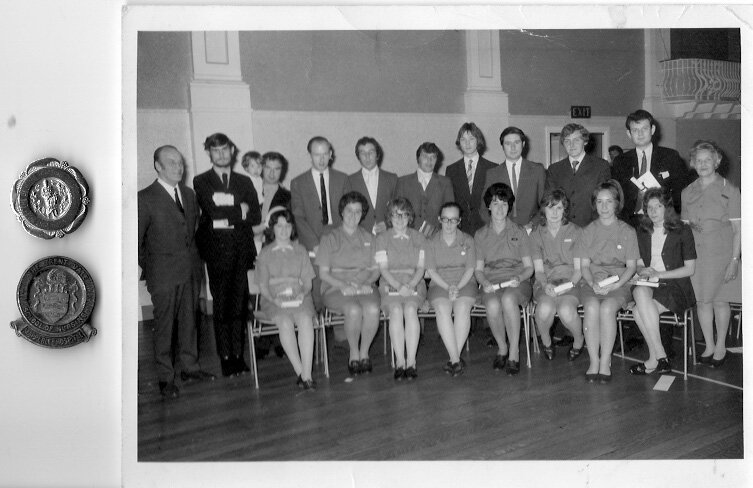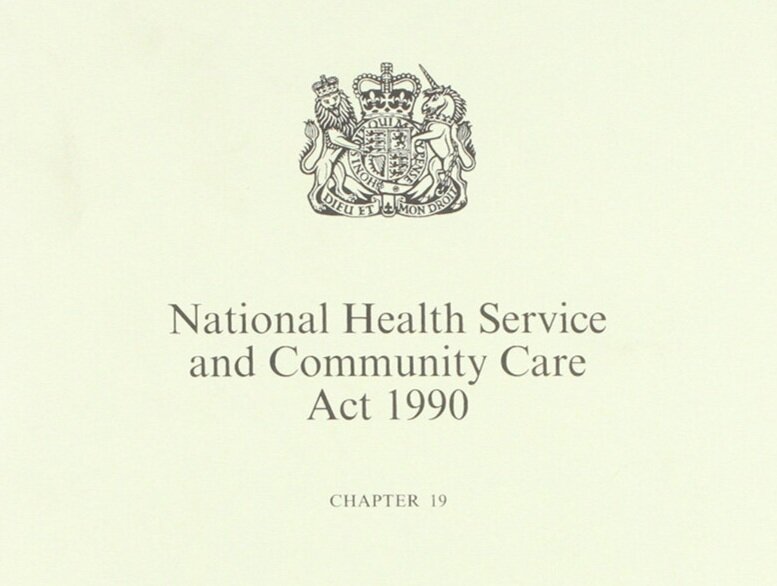Transition from hospital to community care
The National Health Service and Community Care Act 1990 introduced a broad requirement for local authorities to help vulnerable adults remain in the community, thereby preventing or delaying admission to institutional care, with the view of closing down the mental hospitals nationally.
The audio and written extracts below from the oral histories of carers, former nurses and social workers who took part in the Hidden Memories project highlight the benefits, the challenges and some of the drawbacks of moving long-stay patients out of the mental hospitals in Nottingham. The extracts also highlight the benefits and the challenges of caring for people with serious, long-term mental health conditions in the community, including how inpatient care changed with the move to the new acute units at Queens Medical Centre, the local general hospital, as part of the new system of care.
If you would like to share your memories, please get in touch.
“A lot of us thought that people were neglected in the community.”
Neil Goddard
Neil Goddard
Neil trained as a nurse at Mapperley hospital in the 1960s. He qualified in 1971 as a psychiatric nurse. He worked in mental health services in Oxford from the late 1970s to the early 2000s. He enjoyed various roles in mental health services, including working as a psycho-dynamic psychologist and community psychiatric nurse. In this audio extract, Neil remembers the transition to care in the community resulted in neglect for vulnerable people.
“The wards at the QMC [general hospital] weren’t really designed to have patients who were quite disturbed.”
Judith Estrop
Judith Estrop
Judith joined Mapperley hospital in 1965 when she was 18 years old to work in the medical records department. In 1966 she trained as a psychiatric nurse and later joined the School of Nursing at the hospital. She moved to the Queens Medical Centre with the Nursing School until she retired in 2006. In this audio extract, she reflects on how the inpatient care environment changed from Mapperley hospital to the Queens Medical Centre.
“The experience of carers was very problematic and still is problematic in many ways. The attitude of people in the system towards mental health carers tended to vary according to where you were.”
Graham Machin
Graham Machin
Graham has been a carer for his son, who has serious long-term mental health condition, since 1991. Graham was also the Chairman of Middle Street Resource Centre, Beeston, until recently. Graham’s wife, Judith, set up the Carer’s Council in 1995. In this interview extract, Graham recounts his own campaigning work on confidentiality to ensure that carers’ voices were taken into account by mental health professionals in the early years of community care.
“I thought it was very innovative that people were being moved out and going into the community.”
Administrator
“During the process of people starting to move out, there were mixed emotions. People were feeling mostly sad because many had worked at the hospital for many years, and they felt like part of the community. Some of them didn’t agree with care in the community because there always a small group of patients who had been institutionalised for so long who wouldn’t have managed very well In the community… there were also some who were excited and looking forward to a new way of working, new places to work.“
Administrator and later secretary at Mapperley in the mid-1980s who went on to train as a social worker in mental health
“There was a degree of coercion going on at the time.”
Mark Sheppard
Mark Sheppard
Mark worked at Mapperley hospital from 1991 to 1997. He was part of the care management team who implemented the closure of Mapperley hospital. In this audio clip, he describes his memories of moving the long-stay patients into the community.
“People were happy… People didn’t see it as a terrible experience, being in a hospital.”
Adele Cresswell
Adele Cresswell
Adele Cresswell was a Health Authority officer managing the implementation of community care, including the closure of Mapperley Hospital. In this audio extract Adele recalls her memories of the transition from asylum to community care and what the hospital provided.
“The hospital gave them security, so it was quite hard for a lot of them.”
Administrator and later secretary at Mapperley in the mid-1980s
“Long-stay patients knew the routines of the wards, they knew the staff, they knew how everything worked, and it gave them some security, and obviously that all changed and it took quite some time for many of them to adjust to life in the community. Some I don’t I think ever did, to be honest, and they would talk about how life was different now, and recall the days when they were in Mapperley Hospital in a positive way.”
Administrator and later secretary at Mapperley in the mid-1980s who went on to train as a social worker in mental health
“The community team was made up of three specific teams, which were completely multi-disciplinary and we all had joint caseloads.”
Joe Pidgeon
Joe Pidgeon
Joe trained as a social worker and came to work in Nottingham in the mid-1980s to join the Rehabilitation and Community Care Service (RCCS), responsible for closing down the mental hospitals and rehabilitate people in the community. In this interview extract, Joe recounts the multisciplinary nature of RCCS and how they worked with the Nottingham Patients Council.
“I think there's a lot of controversy about the way people were treated in the community at that time.”
Retired nurse
Retired nurse
This former nurse started her training at Mapperley hospital in 1964 as a cadet nurse and stayed working as a nurse for 7 years. In this interview extract, she recalls the regimented way of life at Mapperley hospital as well as some of the innovative practices that were introduced from the mid-1960s onwards.
"When the hospital started to close down, and the long-stay patients were sent out into the community, that didn't work properly to begin with. It was people with no idea about mental illness that were running these boarding houses and giving rooms to people with not a lot of support, I don't think they were properly looked after by the people that were running these places. You'd see people that used to be quite well dressed coming out of the hospital and then you'd see them further down the road locally and they'd be, perhaps not had a wash or certainly needed some new shoes or clothing and that sort of thing."
“I heard many stories from patients from Saxondale ending up homeless.”
MariaPaola
MariaPaola Ditch
MariaPaola trained as a student nurse at Saxondale hospital 3 years before closure (1985-1988). She went on to work as a nurse at the new inpatient acute wards at the Queens Medical Centre that replaced the mental hospitals. In this audio extract, she reflects on the impact of closing Saxondale hospital and the move to the Queens Medical Centre for both patients and staff.
“At Queens you never felt wanted at the hospital by the other places within it.”
Mark Holmes
Mark Holmes
Mark trained as a nurse at St Luke's hospital in Huddersfield in 1991. he got a job as a mental health nurse at the Queens Medical Centre in Nottingham in 1994. In this interview extract, he reflects on the benefits and the drawbacks of moving from the old system of inpatient care at Mapperley hospital to the acute unit at the general hospital in the 1990s.
“The rehabilitation and Community Care Services was a national demonstration site. What I loved about it, it was very non-hierarchical and we were all respected in what we brought, as innovators, we were given a lot of room to manoeuvre. A lot of good people came in and worked hard to change things.”
Christine Millburn
Christine Milburn
Christine trained as a mental health nurse in early 1980s. After qualifying, she joined the Rehabilitation and Community Care Service (RCCS) in Nottingham that developed community care, which became a national demonstration centre. In this interview extract she recounts the innovative work of the rehabilitation unit to move long-stay patients out of the hospitals and support service users in the community.
Image Gallery
Below are a selection of images and articles showing life before Community Care in and around Nottingham.

Judith Estrop as a Deputy ward Sister in the ward office, Mapperley Hospital, 1970s.

Certificate

Kate Holmes nurses uniform

Kate Holmes charity football

Certificate

Picture of Judith Estrop, altered by a day patient who added a halo to show that she is an angel, Mapperley hospital, 1970s.

Pass permit

Uniform permit

Kate Holmes 1967

Local newspaper article about Kate Holmes and the new nursing uniform.

Nurses awards, Mapperley and the Coppice hospitals, 1971

Nurses receiving a badge for their graduation, courtesy of Neil Goddard.












